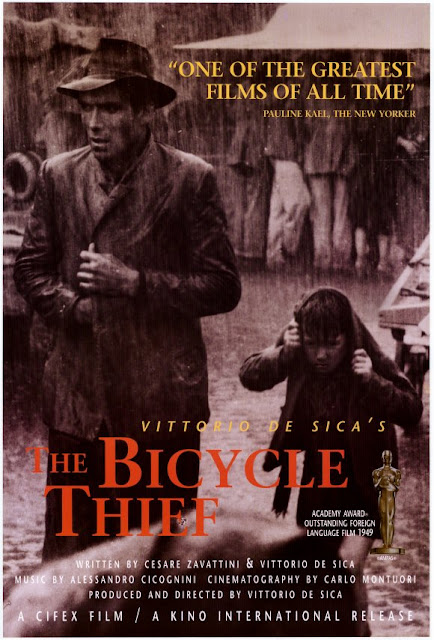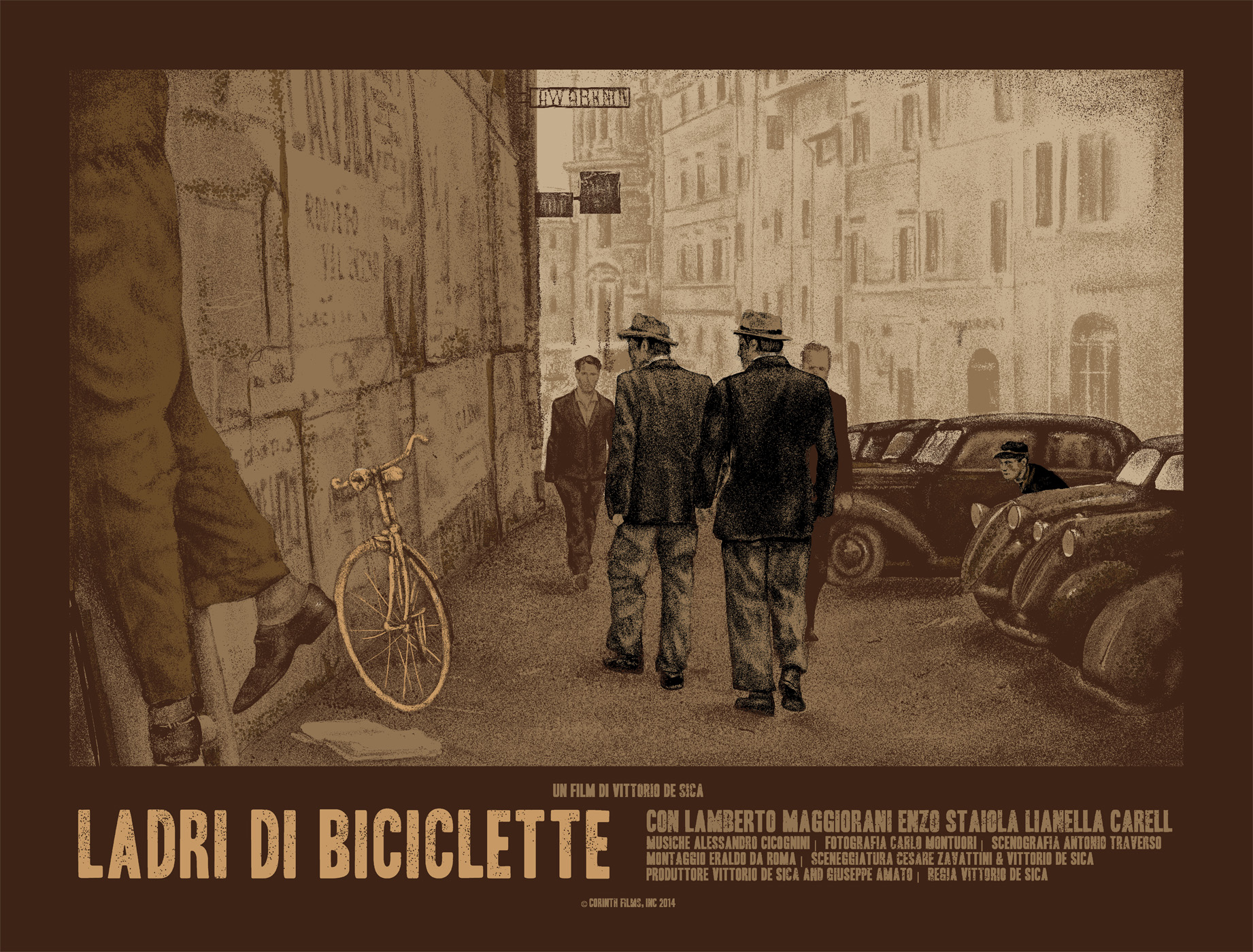
The Bicycle Thief (at AFI through April 18) is 90 minutes long and is not rated. You can assign elaborate symbolic interpretations to it, place it against the matrix of your choice, deconstruct its thematic, cinematographic and allegorical subtexts, but you are stuck with one insurmountable fact: It's about a man whose bike is stolen, and along with it his life. Like many great works of art "The Bicycle Thief" is basically irreducible. What is laid bare for them is a sense of human grief, capped off in the last sequence by Ricci's own surrender of honor, which devastates both himself and his son. It's literally a trip through Hell, and it's tragically futile.
The icycle thief movie#
The next day, he and his son (Enzo Staiola, in one of the great child's performances in movie history) begin a desperate journey to recover it.

After a few hours of lavishing La Rita's face on the scabby streets, he looks down from his ladder to see that his bike has been stolen. His wife pawns the family's sheets to get his bike out of hock, and the next day, proud as a peacock, the man sets out. The film Bicycle Thieves (1949) directed by Vittorio De Sica, is an Italian Neo-Realistic film set in post-war Italy. Alas, it depends on the fact that he's got a bicycle and can post Rita Hayworth movie ads all over town. On the bleak streets of Rome, clotted with crowds, an unemployed man named Ricci (Lamberto Maggiorani) finally gets a job that restores him to dignity and hope. The result is something that sometimes feels too real, too honest, too uncomfortably intimate. Though a sophisticated continental man of affairs, De Sica got his entirely amateur cast to act from their hearts. The film is simplicity itself, a parable of aspiration and thwarted destiny. It gets a brief run this week at the American Film Institute in a new 35mm print, and anybody who claims to love the little pictures in the dark ought to get over there. The movement was called neo-realism, and it shocked the world when it emerged in the '40s, beginning with "Open City" and "Paisan" in 1946.īut the neo-realist masterpiece, Vittorio De Sica's "The Bicycle Thief," came in 1948, winning the foreign-language Oscar and Italy's own Oscar equivalent.

Antonio Ricci is a bill-poster whose bicycle, essential for his job, is stolen by a thief. Films, they understood, could be set in that bitter place called real life. The Bicycle Thief 'The Bicycle Thief' is a deeply moving neo-realist study of post-War Italy which depicts one mans loss of faith and his struggle to maintain personal dignity in poverty and bureaucratic indifference. They were the first to realize not everyone carried a gun, burst into song or slept on satin sheets.

The Americans may have invented the movies but the Italians invented the cinema.


 0 kommentar(er)
0 kommentar(er)
